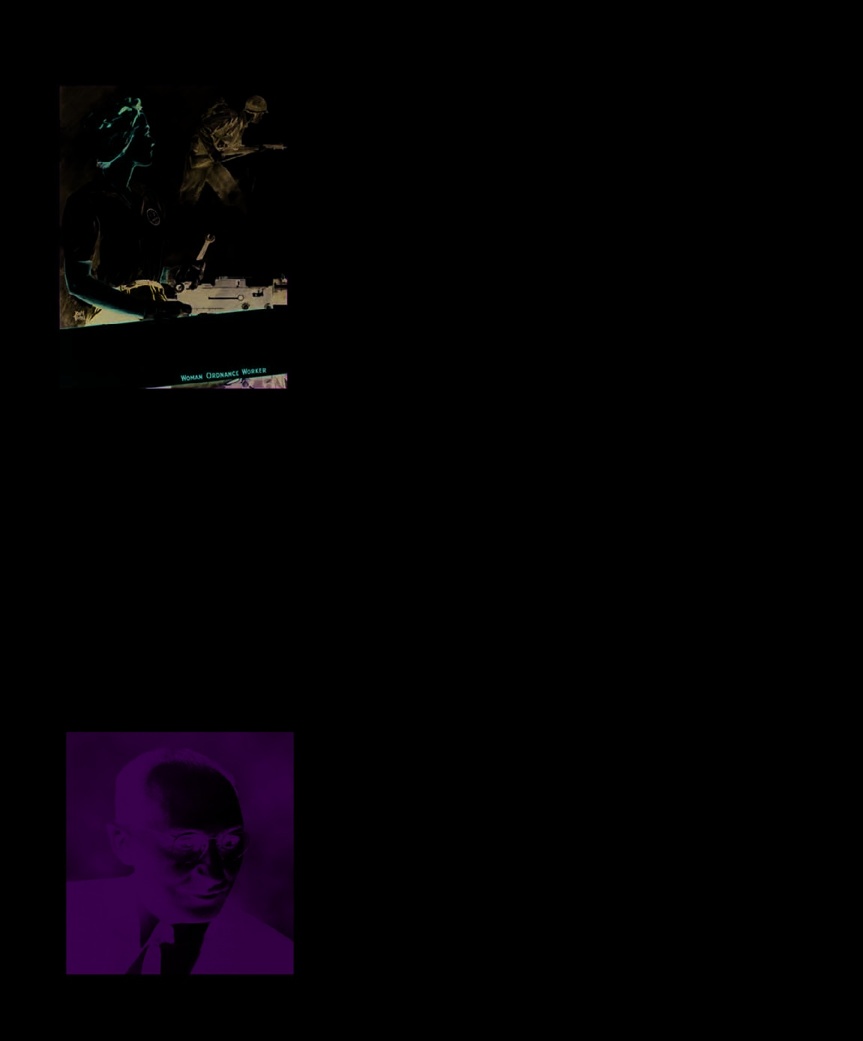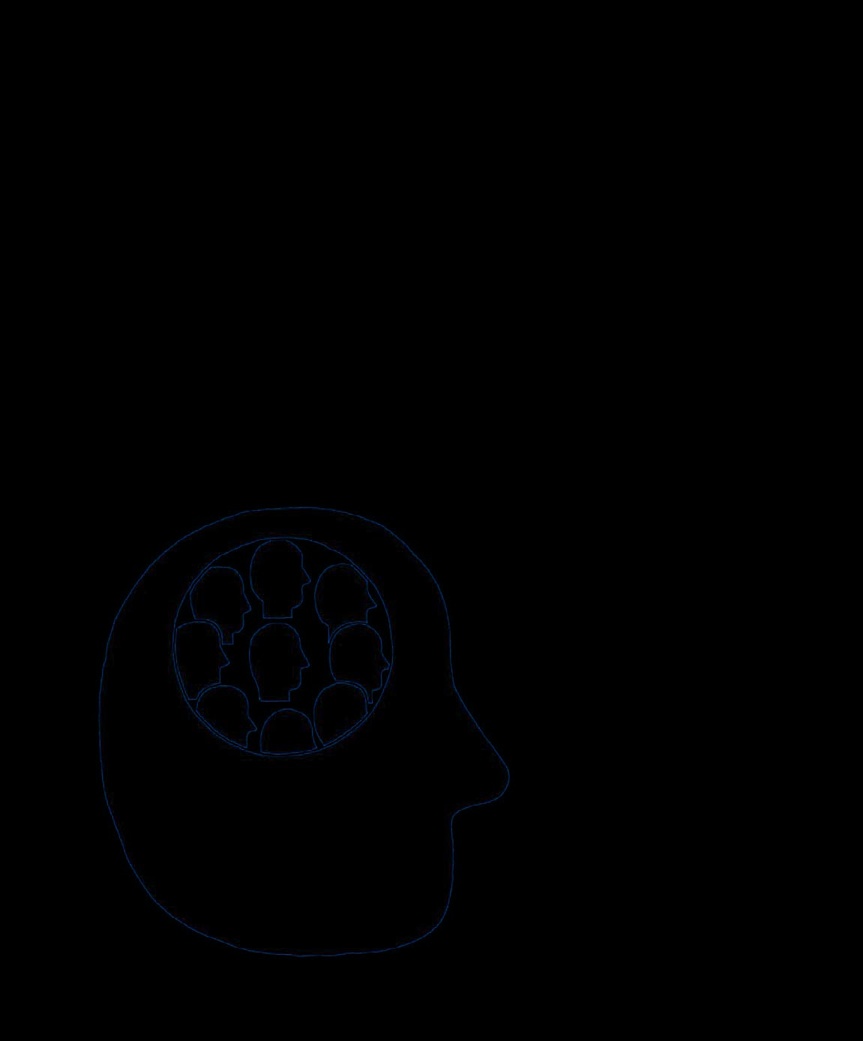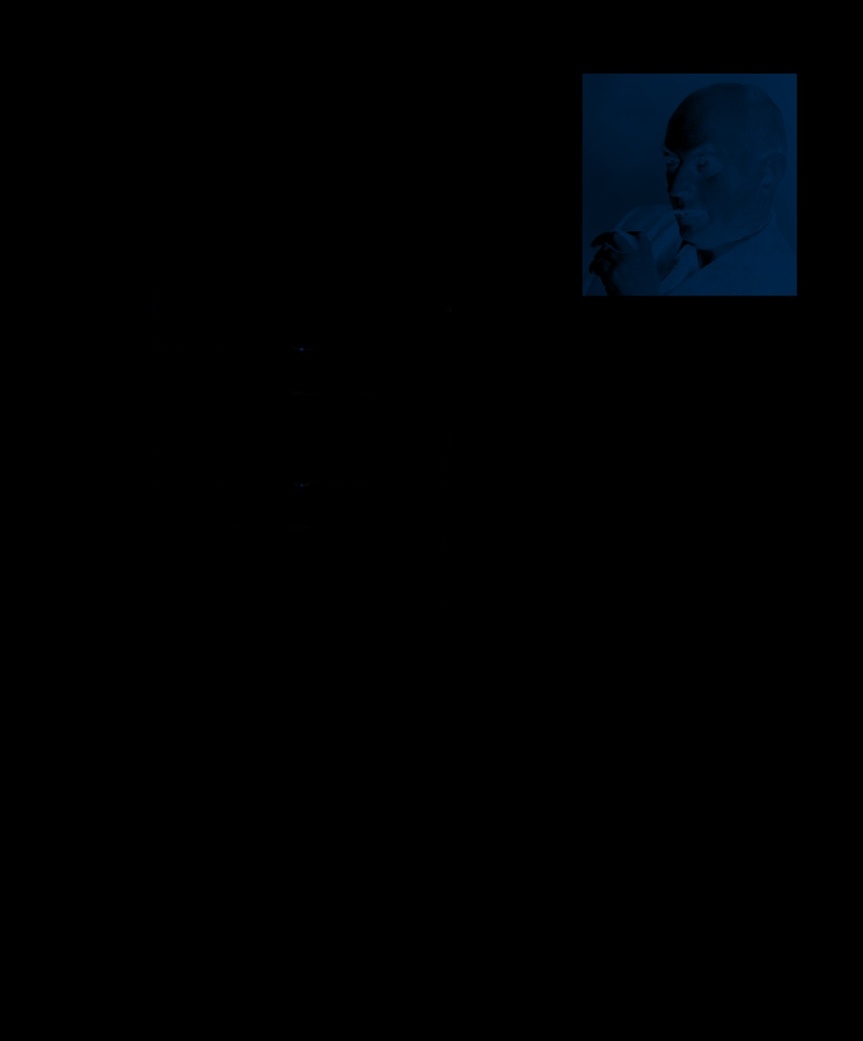The Psychology Book (70 page)
Read The Psychology Book Online
Authors: Unknown

222 KURT LEWIN
in the discussion group he had
belief has been proven wrong or
created an environment in which
ineffective, we are naturally
women felt psychologically safe
inclined to replace the old value
enough to express their concerns
system with a new one, filling the
and opinions. Through exploring
uncomfortable void left by the
their beliefs as well as the realities of
unfreezing process. We do this in a
Learning is more effective
the food shortages, he helped them
combination of ways: relying on our
when it is an active rather
change their opinions about which
instinctive feelings, studying role
than a passive process.
meats were edible and guided them
models, and looking more generally
Kurt Lewin
toward a new belief: that offal is
to the vast array of information
acceptable to buy and serve at home.
available. We hope in this way to
expose ourselves to a new piece
Making the change
of information that will solve the
During Lewin’s second stage—the
problem. Once this insight is
actual change process—people are
achieved, we have accepted and
confronted with the daunting and
established a new mindset.
meats in their family meals. During
confusing task of implementing a
In the case of the American
interviews with housewives, Lewin
new system. They must give up
housewives during World War II,
realized that there were both helpful
familiar routines and practices and
Lewin provided the women with
and hindering forces at play. The
master new skills (which itself can
new information by educating them
helpful forces, or incentives, toward
arouse feelings of uncertainty or a
about the good taste and nutritional
changing the housewives’ view of
fear of failure). In an organization,
value of offal (thereby replacing their
organ meat was its high nutritional
the new system will be defined by
old belief that it was an inferior
value. The hindering forces, or
the leadership, and often relates to
meat), and convincing them that
barriers, to change centered around
technology, structure, procedures,
given the reality of wartime food
the women’s view that the meat
or culture. It is important at this
shortages, there was absolutely no
was inappropriate for them and
stage to provide sufficient support
shame in serving it to their families
their families, and to a lesser degree,
for employees and ensure the
(thereby replacing their pre-wartime
that it would not taste good.
elimination of obstacles.
belief that they would be viewed as
Lewin set up a study using two
At the level of personal change,
social inferiors for eating it).
groups of housewives to explore the
people cannot be given a new belief
best ways of initiating change. The
system, but must find and accept
The freezing stage
first group was told repeatedly that
one for themselves. When an old
After change has been implemented
eating offal was beneficial for them,
within an organization, it must
while the other group took part in a
become part of the company’s
small group discussion focusing on
culture (or “frozen”) in order for it to
how the food shortage problem
be successful in the long term. The
could be eased if women like
new thought processes, practices,
themselves could be convinced to
and behaviors adopted during the
take part in a program of using
transition must become routine.
secondary cuts of meat such as
Management can help to ensure
livers, kidneys, and hearts. When
changes become more firmly
around one-third of the women who
established by publicizing the ways
had participated in the discussion
in which change has benefited the
group later served offal for dinner,
company, and by nurturing positive
Lewin concluded that increasing
the level of people’s involvement
Learning to use new technologies
also increases the likelihood of
in place of old ones is made easier by
changing their attitudes and
an increase in driving forces—such as
behaviors. Lecturing to the first
the ability to contact friends and family
group had proved ineffective, but
worldwide, instantly and inexpensively.

SOCIAL PSYCHOLOGY 223
During World War II
,
housewives
chicken or steak, or if other women
were encouraged to change many of
are criticizing her choice of meat,
their beliefs, from the types of food
she may decide to abandon offal
and clothing that were acceptable
and look for other ways to feed her
to their capability to do “men’s jobs.”
family, starting the unfreezing and
change processes all over again.
ensure compliance to the new
Lewin’s pioneering experimental
priorities) by offering them a $65
work into social systems has led
bonus if the US Department of
him to be widely recognized as the
Transportation rated the company
founder of social psychology. He
among the top five airlines. The use
was the first psychologist to study
of Lewin’s change model marked
“group dynamics” and organizational
Continental’s evolution from being
development in a methodical way.
the poorest-performing airline to
He applied rigorous social science
being named Airline of the Year.
to effect useful social transformation,
At the individual level, the
and his work has been influential
freezing stage marks a time when
across the fields of experimental
new beliefs and practices are tested
and social psychology. ■
through trial and error; this either
feelings toward the change among
reinforces the changes or starts a
employees, perhaps by delivering
new change cycle. For example,
rewards for implementing the new
after a week of serving offal to her
skills or processes. For example,
family, a wartime housewife might
in the 1990s, Continental Airlines
assess whether her family seems to
was forced to file for bankruptcy.
enjoy the meat, whether they seem
There is nothing
In order to stay in business, the
healthy, and whether other families
so practical as
management implemented a major
seem to be judging her positively or
a good theory.
change: they shifted the company
negatively based on her meal choices.
Kurt Lewin
focus from saving costs to putting
If the answers to these questions
out a quality product that met high
are positive, she will continue to
customer standards. They decided
serve offal at dinnertime. If, however,
to reward employees for adopting
her children do not appear to be as
the new policies and practices (to
healthy as they were when eating
Kurt Lewin
German-American psychologist
resign and seek refuge in the
Kurt Lewin was born in 1890 into
US. He began working at Cornell
a middle-class Jewish family in
University, then moved to the
Mogilno, Poland (then Prussia). In
University of Iowa where he
1905, his family moved to Berlin,
became a professor. In 1944, he
where he studied medicine at
became director of the Center
the University of Freiburg before
for Group Dynamics at the
transferring to the University of
Massachusetts Institute of
Munich to study biology. During
Technology, but died of a heart
World War I, he served in the
attack just three years later.
German army, but returned to
Berlin to complete his PhD after
Key works
being injured. He worked at the
Psychological Institute, Berlin,
1935
A Dynamic Theory of
from 1921 to 1933, when
Personality
restrictions on the Jewish
1948
Resolving Social Conflicts
population compelled him to
1951
Field Theory in Social

224
IN CONTEXT
APPROACH
Conformism
HOW STRONG
BEFORE
1880s
Hippolyte Bernheim,
a French physician, uses
IS THE URGE
hypnosis to demonstrate the
concept of “suggestibility.”
1935
Muzafer Sherif’s
conformism experiment
TOWARD
leads Asch to develop the
Asch Paradigm.
AFTER
SOCIAL
1963
Stanley Milgram’s
obedience experiments show
that people conform for an
authority figure despite
SOLOMON ASCH (1907–1996)
CONFORMIT
Y?
experiencing a moral conflict.
1976
Serge Moscovici argues
that a consistent minority can
be influential.
1979
Knud S. Larsen, a
Danish psychologist, shows
that conformity may be tied
to cultural climate.
S
ocial psychologist Solomon
Asch challenged our idea of
ourselves as autonomous
beings when he devised an
experiment to demonstrate our urge
to conform. His famous experiment
showed that when people are
confronted with a majority opinion,
the tendency to conform may be
stronger than their commitment to
what they perceive to be true. He
detailed his findings in his 1955
paper
Opinions and Social Pressure
,
which also discusses the social
influences that shape a person’s
beliefs, judgments, and practices.
Asch wanted to investigate the
effects of group pressure on
individual decision-making, and

SOCIAL PSYCHOLOGY 225
See also:
Serge Moscovici 238–39 ■ Stanley Milgram 246–53 ■
Philip Zimbardo 254–55 ■ Max Wertheimer 335 ■ Muzafer Sherif 337
